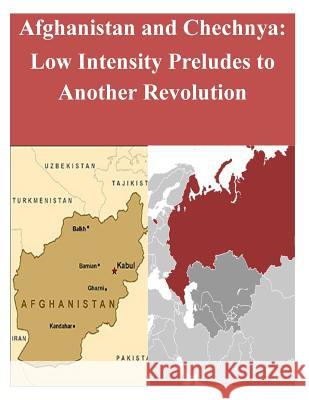Afghanistan and Chechnya: Low Intensity Preludes to Another Revolution » książka
Afghanistan and Chechnya: Low Intensity Preludes to Another Revolution
ISBN-13: 9781500859992 / Angielski / Miękka / 2014 / 76 str.
This book proposes that the Russian LIC experiences in Afghanistan and Chechnya have accelerated dynamic conditions that are contributors to both the demise of the USSR and the detriment of the new Russian state. The negative effect of these LIC engagements has increased the potential for future Russian LIC that may precipitate a larger Eurasian conflict. This book explores the impact of the LIC experiences in Afghanistan and Chechnya on the transformation of the Russian State. It begins with a historical review that analyzes invasion motives and the subsequent impact on the people, the government and the Russian military. The analysis of the recent post-Soviet era reveals that the Russian transformation consists of three smaller transitions: from dictatorship to democracy, from empire to nation state, and from a controlled to a free-market economy. The Russian people, the government, and the military institution have vastly different roles in each of these transitions. This work focuses on the dynamics in Russian civil-military relations, the changing perspectives of Russian military doctrine and implications for future LIC on the transformation of the Russian State. While the Afghan and Chechen conflicts have many similarities, they also have many differences. In many ways, the Afghan experience represents the transition from the Soviet past and the Chechen War represents a view of Russia's future. While the withdrawal from Afghanistan served to enhance future hopes, Chechnya quickly reminded the people of the fragile nature of the democratic transition. For the Russian government, the transformation from empire to nation state requires a new perspective on the use of military force. Future LIC involvement within Russian borders presents a significant threat as the Russian military bears the burden of dealing with the disproportionate and asymmetrical effects of LIC. The relative decline of the Russian economy is inextricably interwoven into the problems facing the people, the government, and the military establishment. A solid economic foundation is one of the most effective means of deterring future Russian LIC. The recent LIC experiences can provide valuable future lessons to both Russia and the larger global community. A failure to seek out and understand the LIC lessons may enhance the prospects for another Russian Revolution that would certainly affect Europe, Asia and much of the world into the 21st century--history would be allowed to repeat itself.
Zawartość książki może nie spełniać oczekiwań – reklamacje nie obejmują treści, która mogła nie być redakcyjnie ani merytorycznie opracowana.











